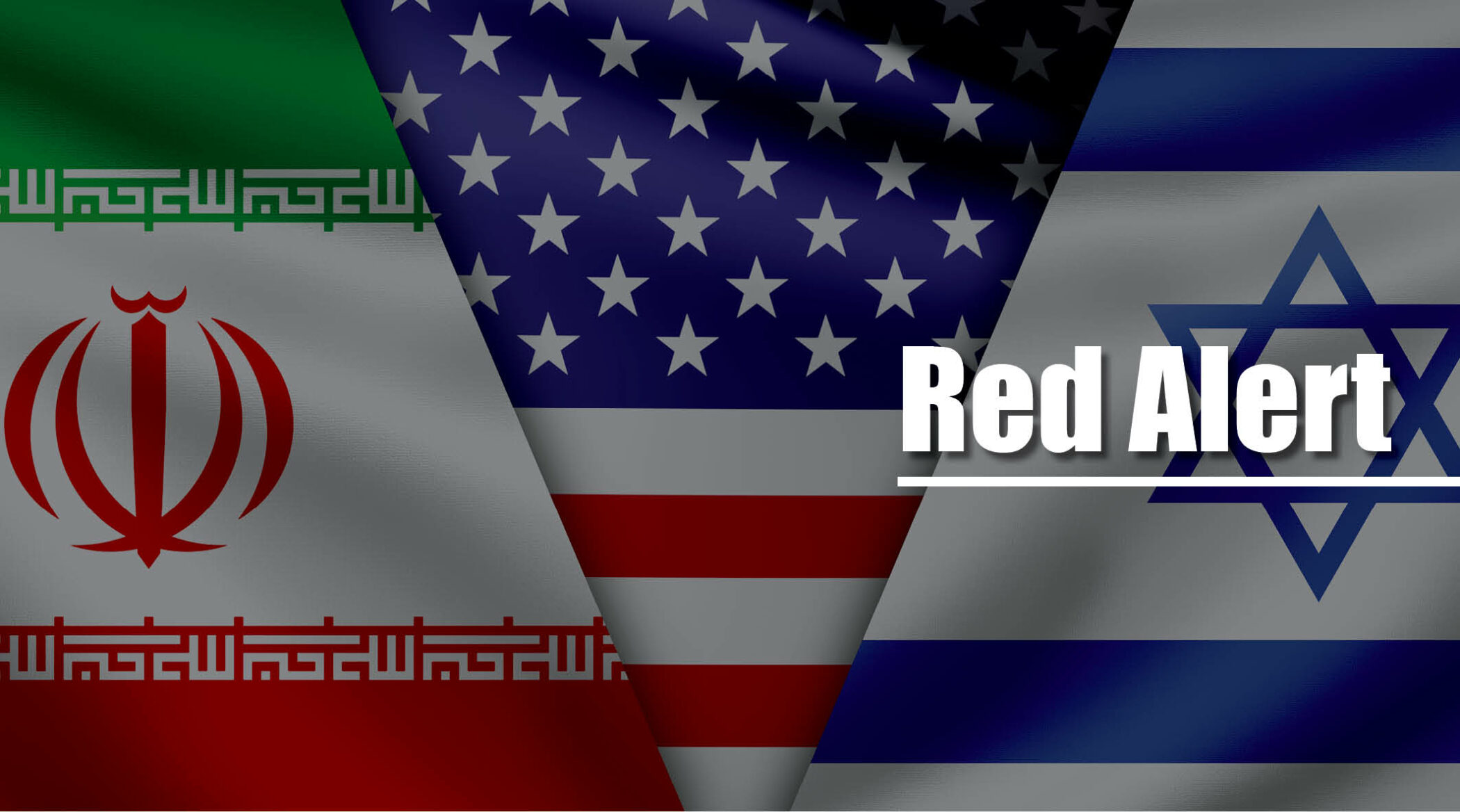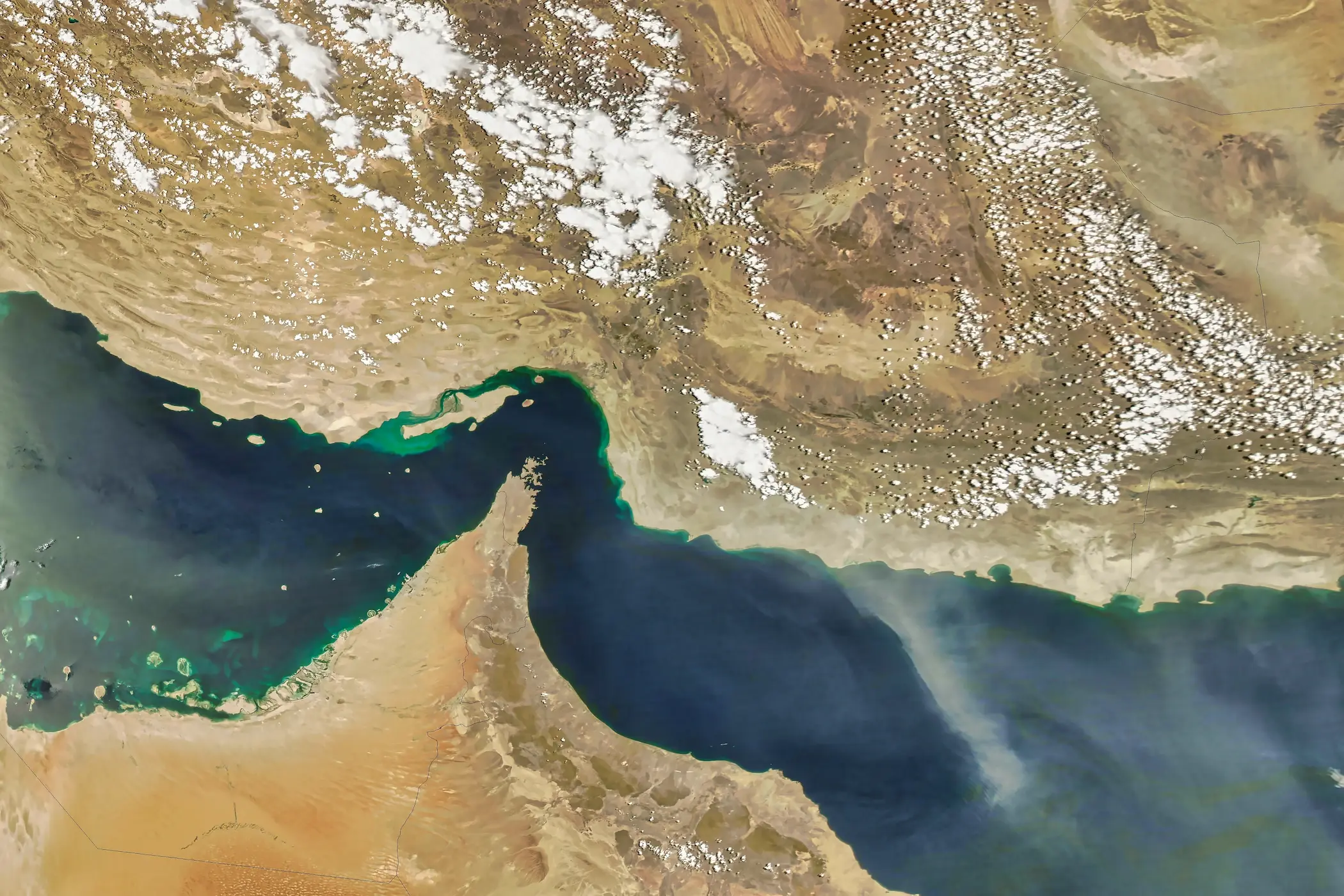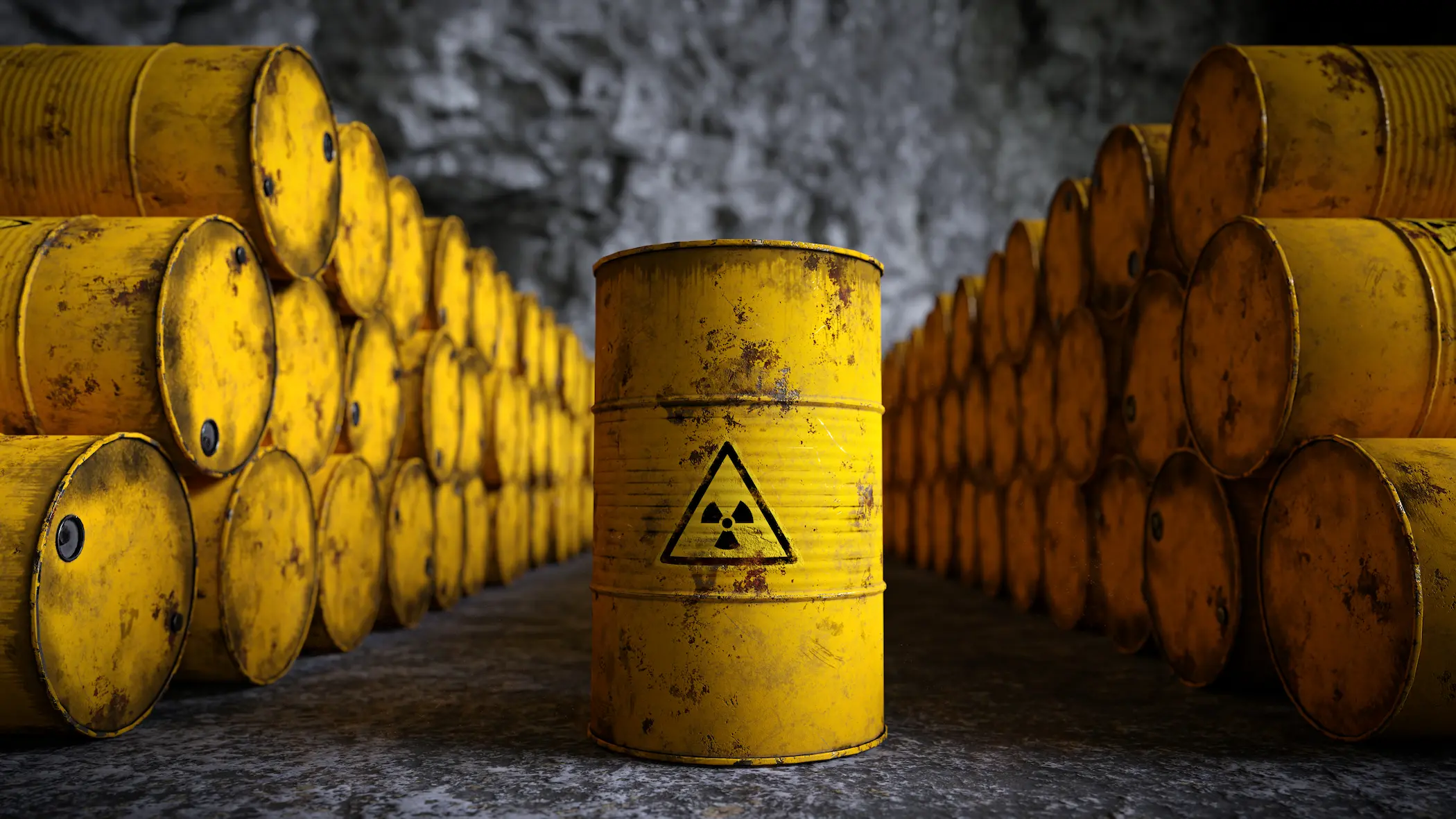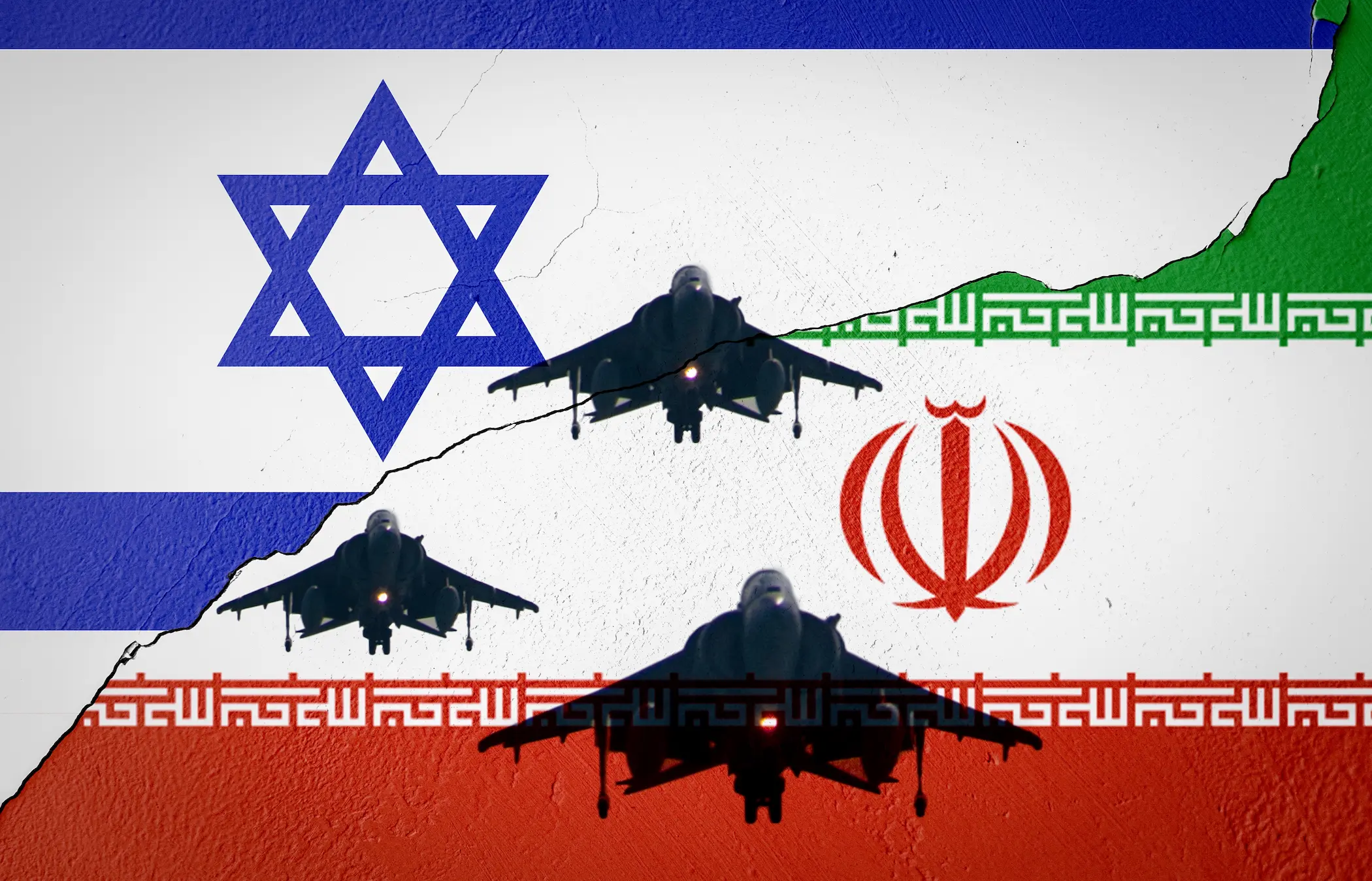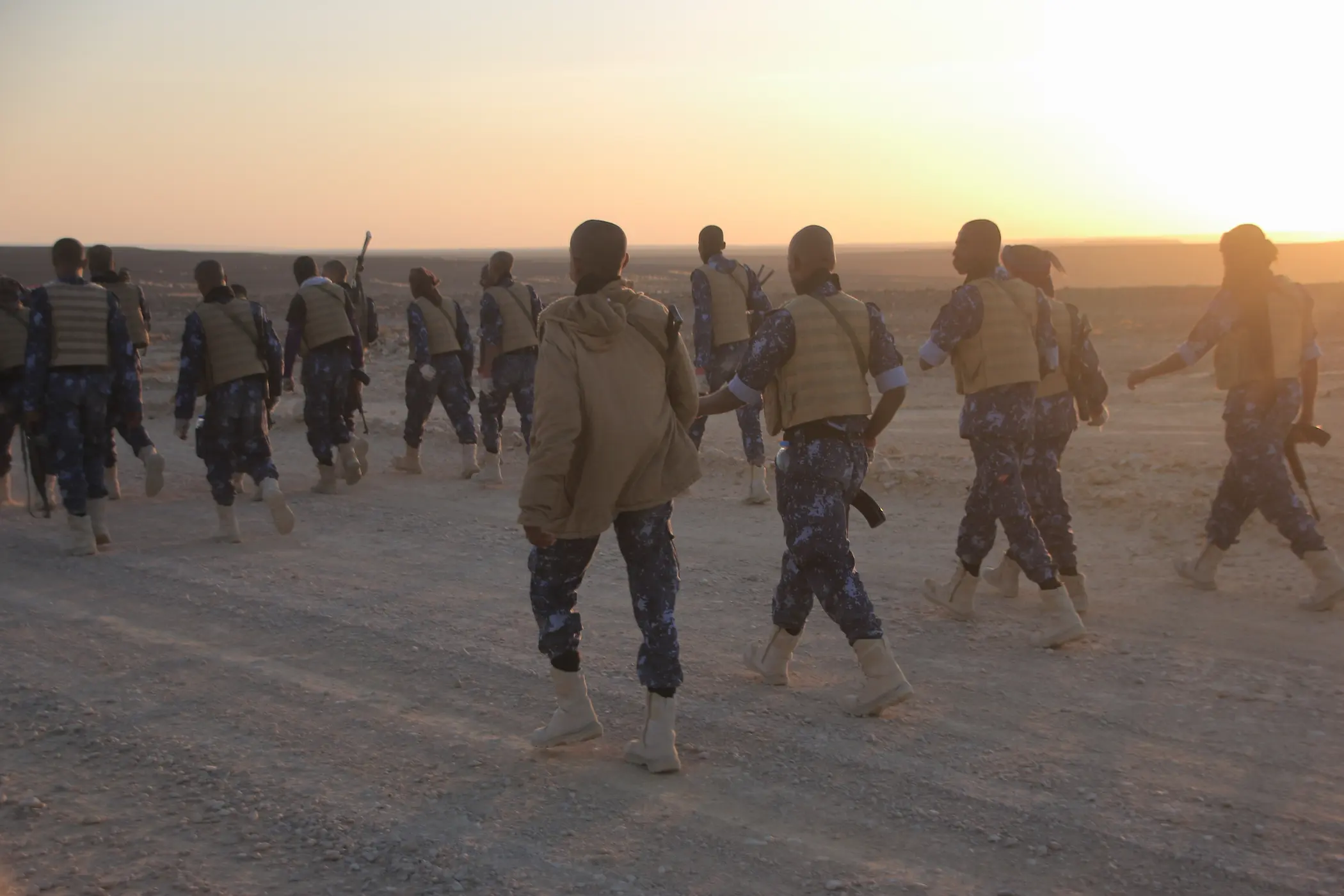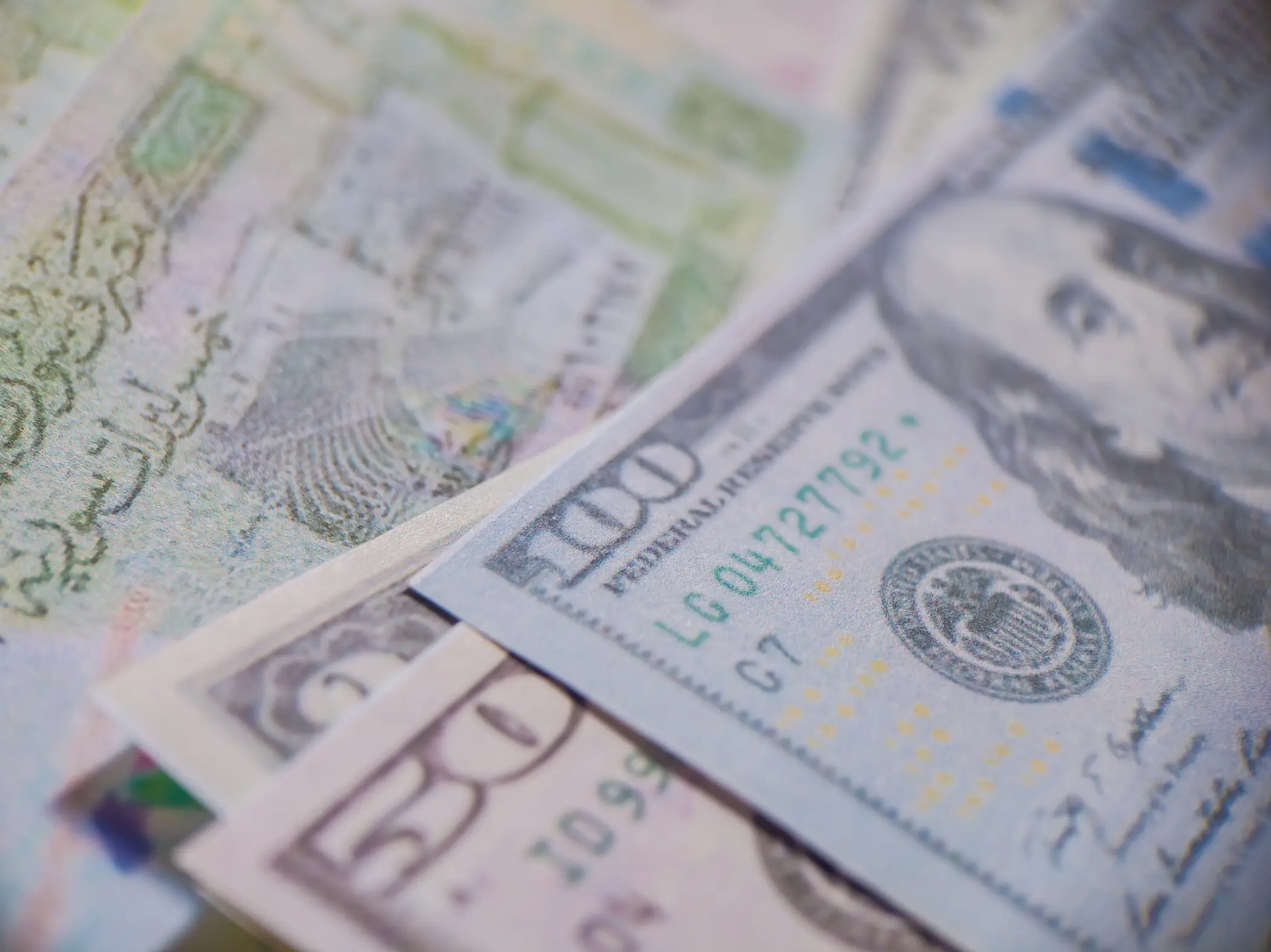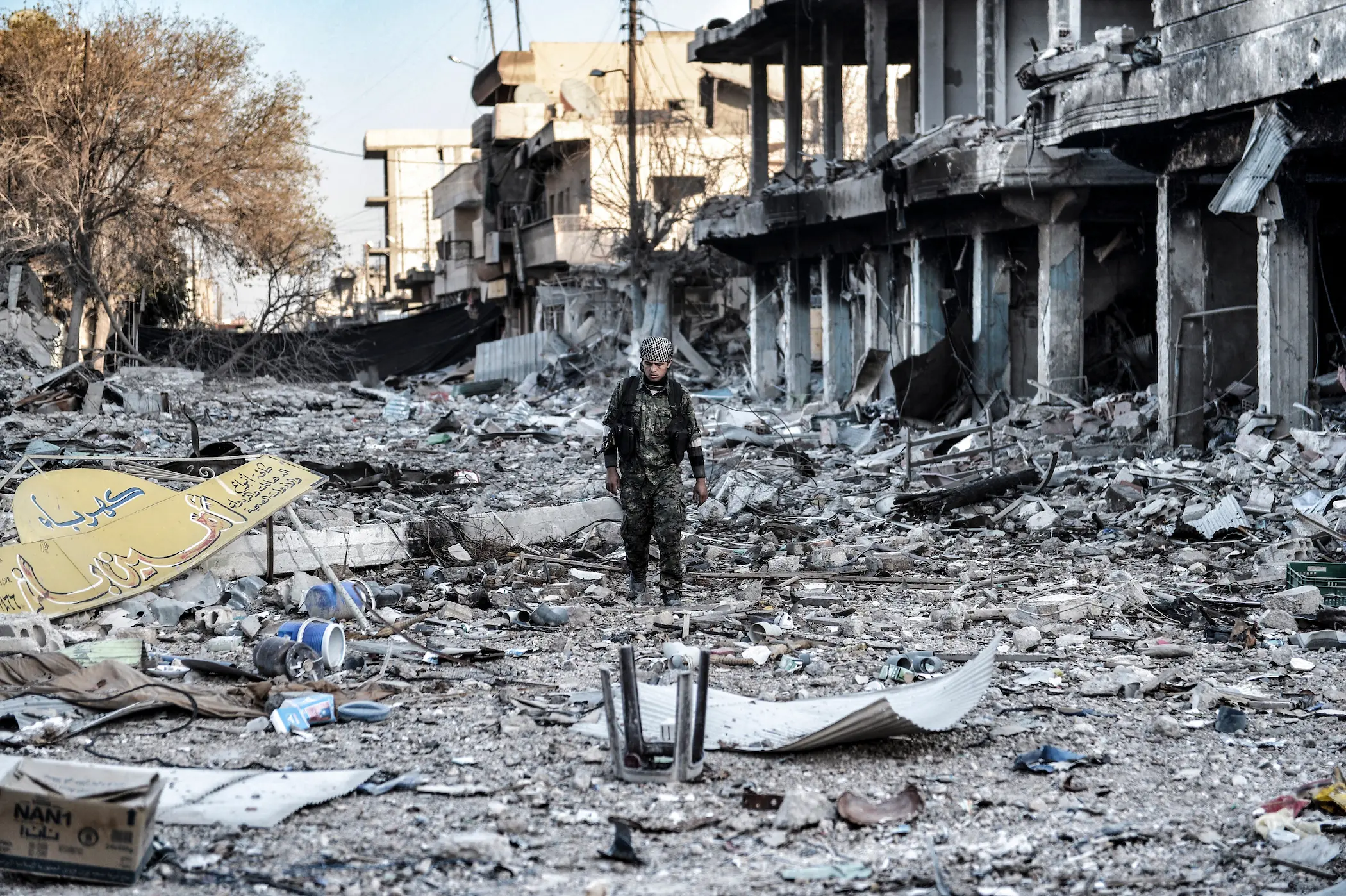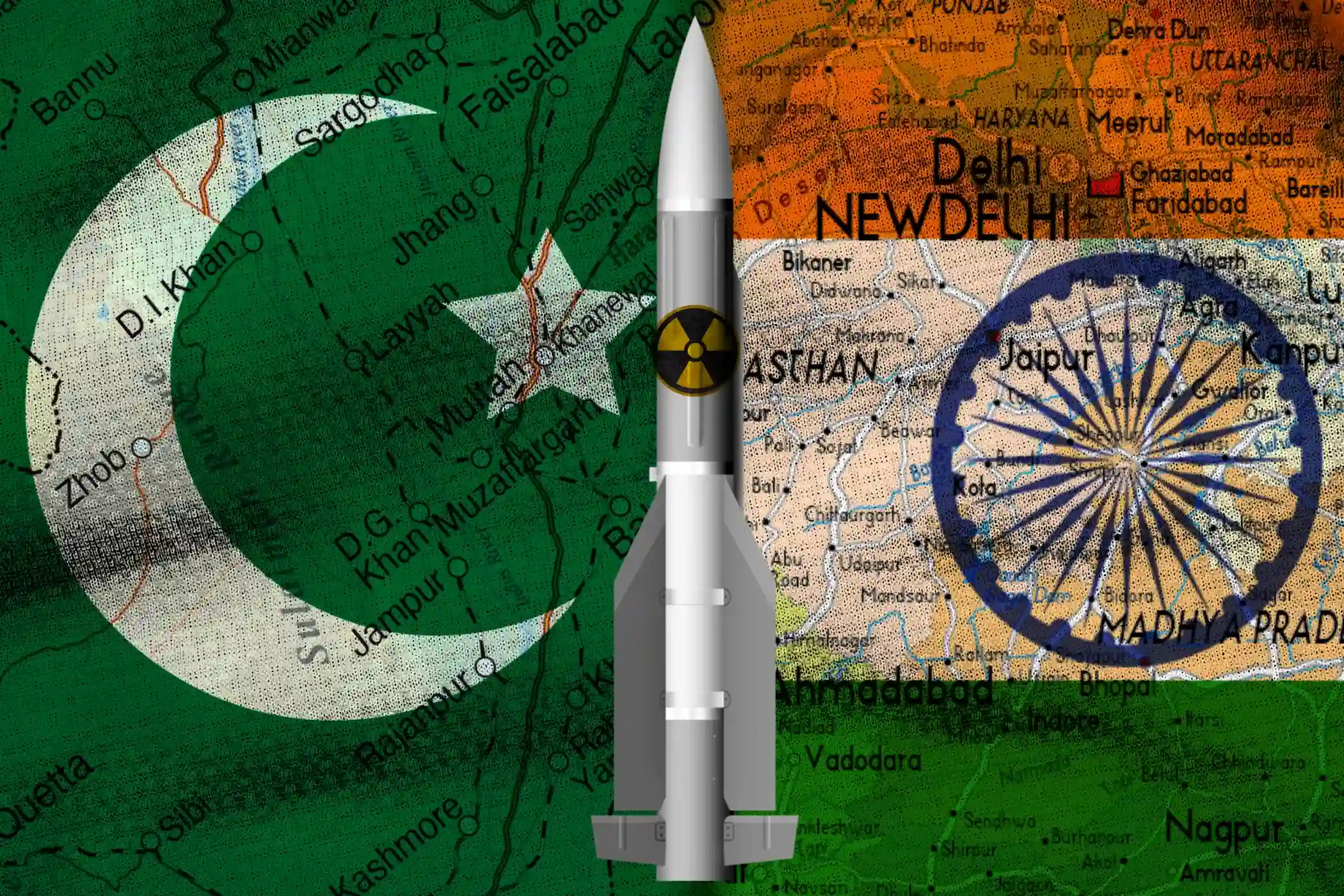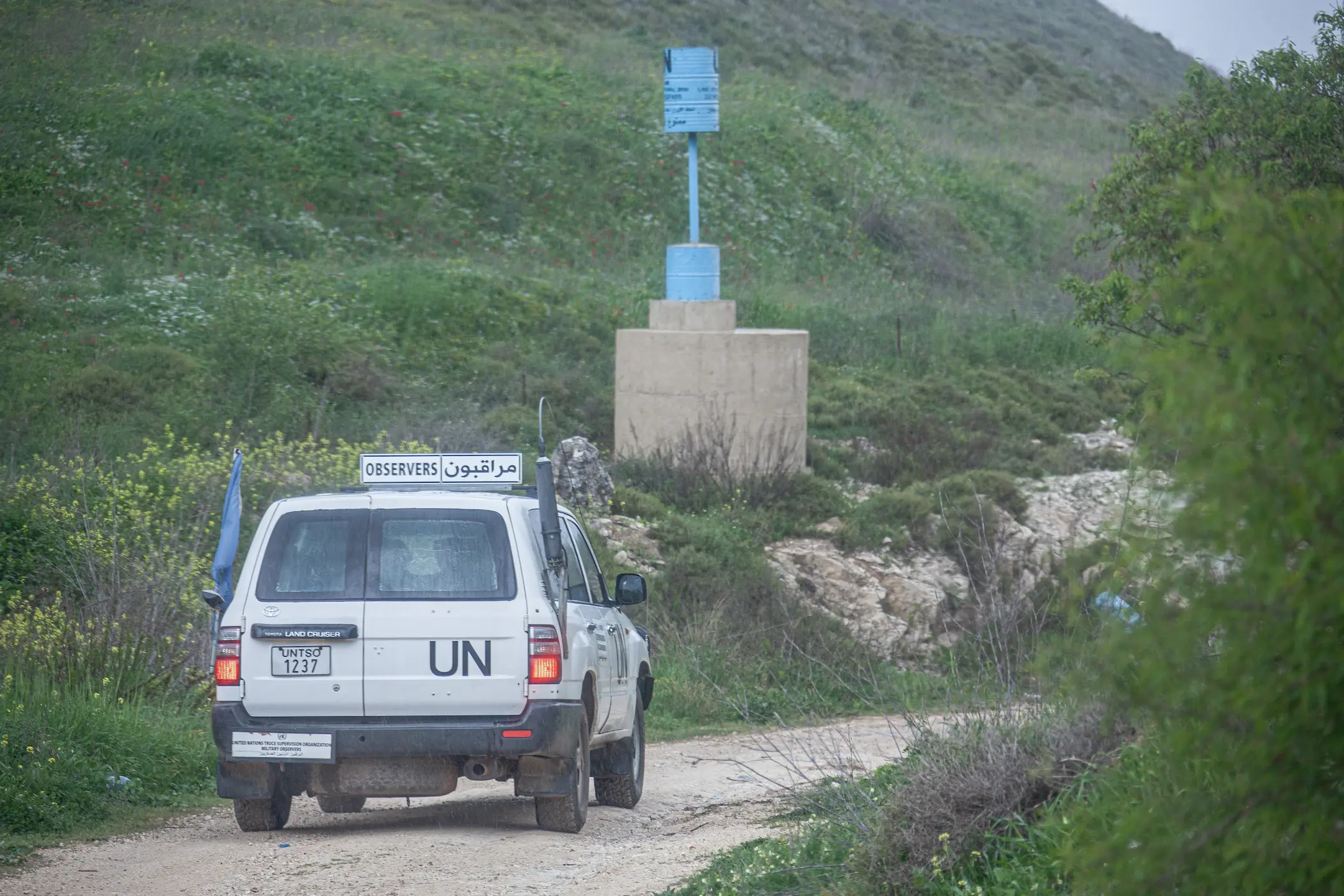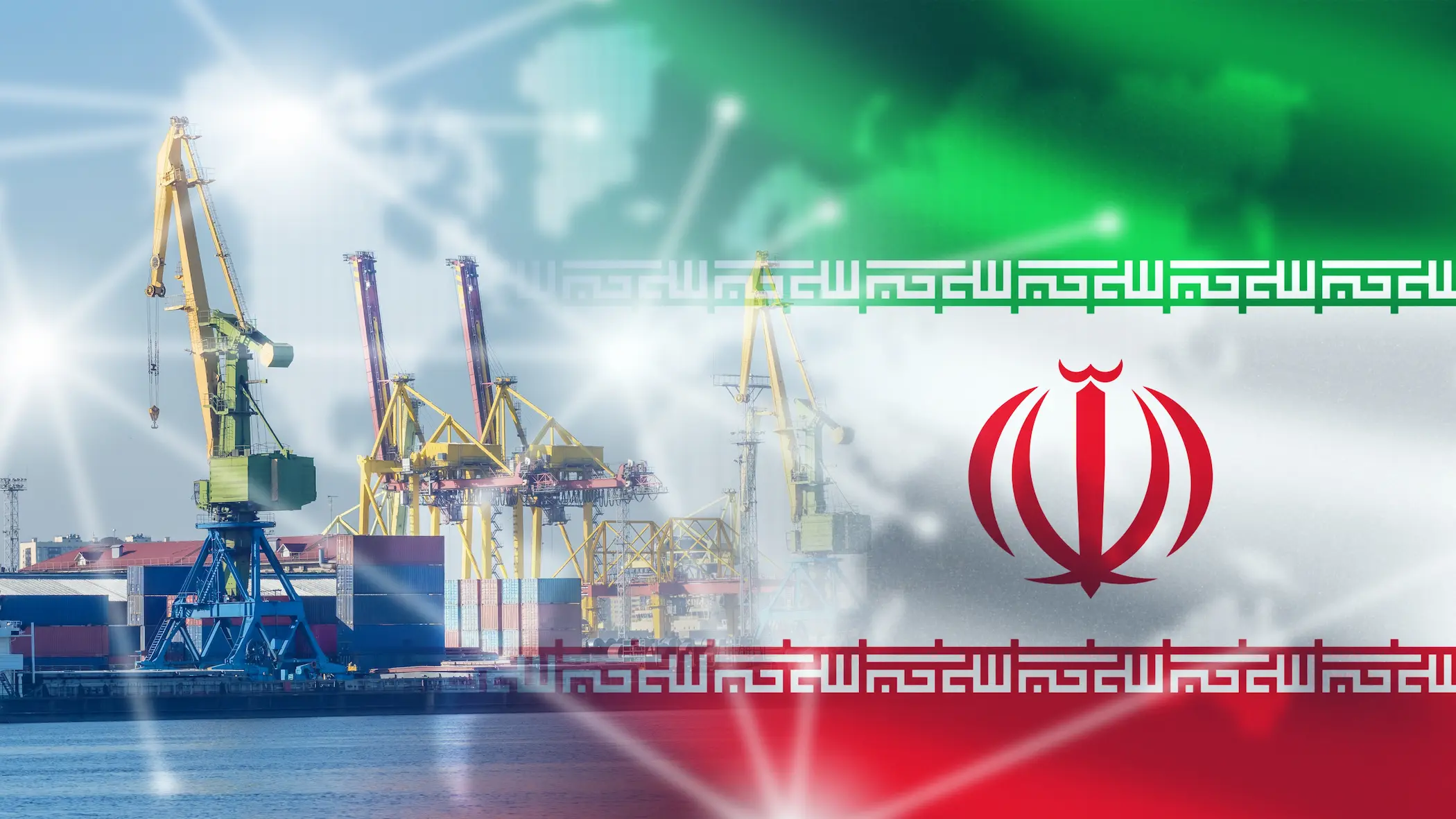19 Jun 2025
Red Alert: Potential US Attack on Iran
On June 13, 2025, Israel launched a surprise offensive against Iran, striking nuclear facilities, missile bases, air defenses, and targeting military leaders and nuclear scientists. In response, Iran retaliated the same evening with firing over 150 ballistic missiles and 100 drones at Tel Aviv and Haifa.
Israel and Iran have continued to trade blows and there are no significant signs of a potential slowdown in the conflict between the long-time adversaries. The spectre that looms over both is that of U.S. President Donald Trump, who has gone from negotiating with Iran for a nuclear deal to pushing for its “unconditional surrender” in the span of a week. as the U.S. simultaneously repositions its military assets to potentially strike Iran.
19 Jun 2025
What If: Iran Closed the Strait of Hormuz?
The Strait of Hormuz – a narrow, indispensable artery through which nearly a fifth of the world’s oil and a third of its liquefied natural gas (LNG) flows– stands on a cliff. As geopolitical tensions intensify across the Middle East, fuelled by escalating Iran-Israel tensions and the shadow of direct United States (U.S.) involvement, the once-unthinkable threat of its closure looms larger than ever with Iran’s threat to close or block the Strait. In spite of the catastrophic global implications of such an act, the volatile depths of this potential crisis will be explored, unravelling the motives that could push Iran to choke this global lifeline, exposing the monumental security and geopolitical fallout, and revealing the catastrophic economic shockwave that would consume nations far beyond the region.
18 Jun 2025
Flashpoints and Fallout: Assessing Regional Nuclear Threats
The threat of nuclear weapons, once seemingly receding with the end of the Cold War, has resurged with alarming intensity. A renewed nuclear arms race and a dangerous erosion of the norms and treaties that have, for decades, helped prevent the unthinkable are being witnessed by the world. Since February 2022, Russia's invasion of Ukraine and the accompanying rhetoric—including overt and subtly veiled threats to employ nuclear weapons—have broken the post-Cold War taboo. Russia's nuclear weapon posture in Belarus increases tensions even more and normalises the debate about nuclear war. The invasion has had a ripple effect globally, with countries like South Korea, Germany, and Poland expressing renewed interest in nuclear deterrence, either through their own programmes or by hosting US nuclear weapons. Poland's consideration of joining Belgium, Germany, Italy, the Netherlands, and Turkey as a host for US nuclear weapons highlights this dangerous trend. Meanwhile, North Korea's continued, unchecked development of its nuclear arsenal and the persistent nuclear belligerence between India and Pakistan serve as concrete examples of the ongoing global threat.
The nuclear shadow over the Middle East has deepened in the aftermath of the October 7 events, which sharply re-escalated regional tensions and exposed the fragility of the existing security order. As Israel’s military operations in Gaza risk broadening into a wider regional confrontation, concerns about the potential use and further proliferation of nuclear weapons have intensified. The director general of the IAEA has recently warned that the intensification of hostilities in the region could acquire “nuclear dimensions,” underscoring the urgent need for full-scope safeguards and renewed diplomatic engagement to prevent further escalation. In this increasingly volatile context, the nuclear issue remains deeply intertwined with broader political and security dynamics, raising the spectre of a dangerous tipping point in regional proliferation. With the renewed conflict between Israel and Iran, talk of nuclear targets and their impact on the region has returned.
Against this backdrop, this paper examines the various forms of nuclear threats and assesses the vulnerability of selected case study countries. These cases—Egypt, the United Arab Emirates (UAE), Saudi Arabia, and Jordan—were chosen based on their susceptibility to nuclear disasters, primarily determined by the presence of nuclear facilities that could be potential sources of risk. Geopolitical significance was also a key factor in the selection process. The threats are grouped into two main categories: the first relates to the dangers posed by nuclear warfare, while the second focuses on risks associated with nuclear or radioactive leaks. Each scenario is further broken down into sub-scenarios that analyse the projected impacts on the selected cases, including estimated fatalities and casualties. The primary criterion guiding case selection and analysis is human loss, with specific cities chosen based on population density, and consequences evaluated accordingly.
By evaluating projected impacts—including human loss and disruption to critical infrastructure—this paper aims to provide a comprehensive assessment of nuclear vulnerability in these key states. In doing so, it highlights how the evolving nuclear landscape in the Middle East region is shaped not only by technological and strategic factors but also by the interplay of domestic ambitions and external pressures. The findings underscore the urgent need for robust safeguards, regional cooperation, and international engagement to mitigate the growing risks posed by nuclear weapons and technology in an increasingly unstable global environment.
15 Jun 2025
Why Did Iran Fail to Repel Operation Rising Lion?
Operation Rising Lion, executed by Israel on June 13, 2025, constituted a lightning strike aimed at crippling the very core of Iran's nuclear and military infrastructure. Israeli Prime Minister Benjamin Netanyahu characterised this pre-emptive operation as a necessary measure to "roll back the Iranian threat to Israel's very survival," drawing upon the Begin Doctrine previously brought to bear in analogous strikes against Iraq in 1981 and Syria in 2007. The operation's objectives were marked by strategic multiplicity and diversity, encompassing the targeting of numerous nuclear facilities, alongside senior Iranian military commanders and nuclear scientists, in an endeavour to inflict maximum damage upon Iran's military and nuclear capabilities. Israel's intent was not merely confined to disrupting the nuclear program; it extended to undermining Iran's capacity to mount retaliatory assaults and to fend off future waves of Israeli attacks.
The timing of the Israeli operation came on the heels of a meticulous assessment by the Israeli leadership, which had concluded that Iran was on the cusp of achieving a dangerous breakthrough in its pursuit of nuclear weaponry, thereby necessitating the exploitation of a narrow temporal window before Iranian nuclear facilities became either too advanced or too robustly protected. In this context, this analysis aims to delve into the rationale underpinning the operation, to account for Tehran's apparent failure to parry the assault effectively, and to examine the attack's repercussions on Iran's domestic landscape. Furthermore, it seeks to investigate the potential pathways Iran might pursue to reconstitute its deterrent capability.
15 Jun 2025
The Erosion of Iranian Deterrence
Between June 13 and 14, 2025, Israel executed one of the most daring and sophisticated military operations in its contemporary history: a multi-pronged aerial strike that penetrated deep into Iranian sovereign territory in an unprecedented fashion. The offensive targeted critical nuclear infrastructure, including the Natanz and Fordow enrichment facilities, alongside additional military installations near Isfahan. Furthermore, the operation struck key airbases integral to Iran’s air defence network, most notably Hamadan and Tabriz airfields. In parallel, Israeli forces targeted senior leadership within both the Islamic Revolutionary Guard Corps (IRGC) and the conventional military, with subsequent intelligence assessments confirming direct hits and casualties among Iran’s high command.
Iran's response, though swift, bore the hallmarks of operational improvisation. Seeking to reassert deterrence and project resilience, Tehran launched over one hundred unmanned aerial vehicles (UAVs) on the same day, primarily of the Shahed-136 and Shahed-131 variants. These drones traversed approximately 2,000 kilometres through Iraqi and Syrian airspace. However, the majority failed to reach Israeli territory. Instead, they were intercepted by a multi-layered defensive network composed of Jordanian, Saudi, and Israeli air defence systems, all heavily supported by U.S. early-warning and tracking technologies. A large number were neutralized over Iraq’s Anbar province and the deserts of Jordan, while others were downed over northern Saudi Arabia.
On June 14, Iran escalated by launching its principal retaliatory strike in the form of a large-scale, coordinated ballistic missile attack. Over 150 ballistic missiles were deployed, prominently including Ghadr-110 (with a range of up to 3,000 km), Khorramshahr, and Sejjil-2—among the most advanced systems in Iran’s medium-range missile arsenal. These missiles targeted multiple sites deep inside Israeli territory. A notable strike occurred near Israel’s Ministry of Defence compound in the Kirya complex in central Tel Aviv, where one missile reportedly caused structural damage and minor injuries, though no fatalities among military personnel were confirmed. Additional missiles struck civilian infrastructure in Tel Aviv, Ramat Gan, and Rishon LeZion, injuring several individuals—one critically—with the majority suffering only mild to moderate wounds.
Despite the magnitude of the missile barrage, the strategic yield fell significantly short of Tehran’s expectations. This underperformance prompted Iranian authorities to broaden the scope of their confrontation, issuing explicit warnings that U.S. military assets across the region—particularly in the Gulf—would henceforth be considered legitimate targets. These threats referenced high-value installations such as Al Udeid Air Base in Qatar, Al Dhafra Air Base in the United Arab Emirates, and U.S. military positions in Iraq, including Ain al-Asad and Camp Victoria in Baghdad, as well as naval facilities in Bahrain.
From Iran’s strategic vantage point, any U.S. involvement—especially in reinforcing Israeli air defences—constitutes direct participation in the hostilities. This rationale is now used to justify Tehran’s threats to strike American military positions across the Gulf. The implications of this shift are profound: for the first time since 2020, the prospect of open military confrontation in the Persian Gulf has become a credible geopolitical scenario. The regional deterrence equation, long balanced on latent threat and calculated ambiguity, has now entered a phase of dangerous volatility.
This analysis seeks to offer a comprehensive examination of the strategic motivations underpinning Iran’s threats to target U.S. military bases in the Gulf region. By synthesizing operational data—namely, Iran’s patterns of ballistic missile and drone deployment—with broader structural dynamics of regional and international power distribution, to elucidate the strategic logic through which American military installations in the Gulf emerge as priority targets within Iran’s evolving deterrence doctrine.
12 Jun 2025
Clandestine Axis of Middle East Hegemony: Iran, Israel, and the US
In George Orwell's classic 1984, his world was held together by unending war: In the book, messages of hate and reasons to fear were broadcast each day to encourage fearful, slavish masses to rail against an imaginary enemy rather than their actual masters.
US and British geo-strategists have historically been masters of manipulation, redrawing the map of the world to suit Western economic, geopolitical, and military interests, particularly in the MENA region. Their detractors are convinced that their broad goal is Western domination of the area via surrogates and partners such as Israel and Iran (via the back door) to retain control over natural resources and waterways while ensuring those resources do not fall into the hands of competitors such as China and Russia. A school of thought contends that they manufacture sectarian conflicts on the principle of “divide and rule,” creating tensions that justify the installation of military bases and fuel the military-industrial complex through arms sales.
A 2008 paper titled America’s Divide and Rule Strategies in the Middle East by Mahdi Darius Nazemroaya highlights US efforts to create divisions within Middle Eastern and Central Asian populations through ethno-cultural, religious, sectarian, national, and political differences. According to this perspective, sectarian divides—particularly between Sunni and Shia Muslims—have been deliberately cultivated to weaken regional unity and facilitate geopolitical control.
The Iraq War (2003) and its aftermath further exacerbated these sectarian tensions. The dismantling of Saddam Hussein's Sunni-dominated Ba'athist regime and the empowerment of Shia and Kurdish groups created a power vacuum, fueling sectarian violence. Groups like Al-Qaeda in Iraq (later ISIS) thrived under these conditions, exploiting sectarian grievances. The redrawing of Iraq’s internal boundaries, particularly the establishment of the Kurdistan Regional Government, further solidified ethnic divisions. Toby Dodge, in Inventing Iraq: The Failure of Nation Building and a Road to Peace, argues that the US approach to state-building in Iraq inadvertently deepened these fault lines.
Similarly, US involvement in the Syrian Civil War (2011–2024), through support for various opposition groups, contributed to the country’s fragmentation along ethnic and sectarian lines. The conflict saw the rise of numerous factions, many of which received US backing. The emergence and territorial control of Kurdish-dominated forces in northeastern Syria, supported by the US in the fight against ISIS, created tensions with Arab populations and neighboring Turkey. The conflict has been widely analyzed as having a significant sectarian dimension, with regional powers backing different factions along Sunni-Shia lines.
Middle East expert and author Fred Reed states: “One might be forgiven for surmising that the current thrust of US policy in the Middle East and through the Muslim world is to exacerbate Sunni-Shiite divisions.”
US foreign policy in the region has often been perceived as favoring certain regional powers over others, sometimes along sectarian lines, exacerbating existing tensions. The complex relationship between the US and Saudi Arabia (a Sunni-majority state) and its rivalry with Iran (a Shia-majority state) has frequently been interpreted through this lens, even if US interests are primarily geopolitical. Support for different factions in conflicts like the Yemeni Civil War has similarly been framed within the context of regional sectarian rivalries.
Certain think tanks and policy circles in the US have promoted ideas that emphasize sectarian and ethnic divisions in the Middle East as a way to understand and potentially manage the region. Foreign Policy in Focus columnist Conn Hallinan argues that a major US concern in the Middle East is oil. With two-thirds of US oil expected to be imported by 2020, and 65% of the world's remaining oil reserves located in the Middle East, he suggests that a strategy of “divide and conquer” is aimed at keeping strategic control of these resources. Hallinan also highlights the lucrative nature of ongoing Middle Eastern tensions for the US arms industry, citing that countries like the UAE, Saudi Arabia, Kuwait, and Oman have spent over $150 billion on arms purchases.
While the significance of oil in US foreign policy has arguably shifted due to increased domestic production and diversification of energy sources, the Middle East remains strategically important for global energy security. A 2024 report from the Council for a Secure America notes that US oil imports from the Middle East have reached a record low, falling below 11% of total imports. However, this shift does not negate the region’s role in global energy markets.
The US continues to maintain strong relationships with key Gulf oil-producing states like Saudi Arabia and the UAE. While policy priorities have expanded beyond securing oil supplies to include counterterrorism, regional stability, and containing rival powers, access to stable energy markets remains a key consideration. Events like the war in Ukraine have further underscored the interconnectedness of global energy markets and the importance of stable Middle Eastern oil production in preventing global price shocks. In fiscal year 2024, US military sales surged, with direct commercial sales rising to $200.8 billion from $157.5 billion in 2023. Government-facilitated arms sales also increased to $117.9 billion. The Middle East remains a significant market for US arms exports, with over $5.5 billion in approved arms sales to Egypt and Morocco alone in December 2024.
The underlying argument of this paper is that beyond the apparent hostilities and rivalries in the region, there exists a covert strategic alliance between Iran, Israel, and the United States. This cooperation manifests in various ways, including indirect coordination in conflict zones, intelligence-sharing, and economic transactions that defy public rhetoric. Despite Iran’s portrayal as a staunch adversary of both the US and Israel, instances of tacit collaboration—such as Iranian oil exports finding their way to markets through indirect channels, US tolerance of Iranian-backed militias in specific contexts, and shared interests in counterbalancing regional actors like Turkey and the Gulf states—suggest a more complex dynamic. This hidden alliance reflects a pragmatic approach to maintaining regional equilibrium, securing strategic interests, and preventing the emergence of truly independent powers that could challenge the existing order.
3 Jun 2025
Why the Houthis Insist on Attacking Israel?
The Houthi armed group has been launching missile and drone attacks on Israel since the start of the Hamas-Israel war in October 2023. While these actions have been undertaken to show solidarity with Gaza and the Palestinian cause, the Houthi utilised these attacks to increase its popularity in Yemen. Moreover, the Houthi group, which is mainly supported by Iran, used these attacks to prove that it is capable militarily of engaging with foreign powers, hence delivering a message to the Aden-based legitimate government and its Gulf allies that it is militarily ready to engage with them.
19 May 2025
What Does the Lifting of U.S. Sanctions Mean for Syria?
The United States started putting sanctions on Syria as early as 1979, mostly because Syria was labelled as a State Sponsor of Terrorism (SST). The first designation was based on Syria's military occupation of Lebanon and its support for groups like Hezbollah that the government paid for. This early policy took a harsh and threatening stance against a government that was seen as hostile and supportive of non-state actors that were seen as a threat to U.S. interests.
After the Syrian conflict started in 2011, the U.S. greatly increased its sanctions against the Assad government. The goal of these more extensive measures was to stop the Syrian government from using violence against its people and to encourage political changes that could get to the bottom of the conflict. This was a big change from only focussing on counter-terrorism to a wider agenda that included human rights and changing the behaviour of the regime, with some elements of coercive diplomacy.
The end of Bashar al-Assad's rule in early December 2024 marks a major change in Syria's politics. This event changed the main goal of the long-standing U.S. sanctions, which were mostly aimed at the now-deposed government.
In May 2025, during a trip to Saudi Arabia, U.S. President Donald Trump made a big announcement: he would lift sanctions on Syria. He said this would "give them a chance at greatness." Many people see this announcement as a "historic development" that has "major potential to improve living conditions" and "support the Syrian political transition." The goal is to make the area more stable and improve Syria's economic prospects after years of being held back by harsh international sanctions. This paper looks at the United States' sanctions against Syria in depth, putting the recent change in policy in the context of its history and the law.
18 May 2025
A New Regional Committee to Fight ISIS
In March 2025, Turkey, Syria, Jordan, Lebanon, and Iraq agreed to create a joint committee to fight the Islamic State of Iraq and Syria (ISIS). While this committee reflects the desire of regional countries to take lead in deterring regional security threats, it also motivates the United States to withdraw its forces from Syria, giving more space to the new formed committee to fight ISIS. Moreover, the newly formed committee could serve as an alternative to the U.S.-led international coalition that was established in September 2014 to counter ISIS and curb its spread in Syria and Iraq.
While the coalition was instrumental in weakening the group, mainly through airstrikes and by supporting Kurdish armed factions on the ground, it now appears that regional actors are stepping in to lead the next phase of counterterrorism efforts.
14 May 2025
What If: The India-Pakistan Ceasefire Collapses?
The recent U.S.-brokered ceasefire between India and Pakistan, following four nerve-racking days of escalating military exchanges, offered a moment of reprieve from the brink of what many feared could become an all-out conflict between the two nuclear-armed neighbors. Missiles and drones crossed borders, tensions were sky-high, and the language from both capitals was increasingly aggressive. President Trump's sudden announcement of a truce, while welcomed, underscored the inherent fragility of the situation. Amid celebrations in India and Pakistan, and self-congratulations in Washington, Kashmir endured another night of violence, with both sides claiming violations. This temporary calm exists against a backdrop of deep-seated historical grievances, unresolved territorial disputes, evolving nuclear doctrines, and a complex interplay of internal and external pressures. The critical question now is not just how the ceasefire was achieved, but whether it can hold, and what the consequences would be if this fragile truce were to collapse.
8 May 2025
Hezbollah 2.0: The Future of the Party in Lebanon
Hezbollah stands at a pivotal crossroads, navigating the turbulent aftermath of a devastating conflict with Israel and grappling with profound shifts in its domestic politics and the regional strategic map. The cessation of hostilities, marked by a U.S.-brokered ceasefire effective Nov. 27, 2024, brought an end to intense fighting that inflicted immense human suffering and infrastructural damage across the country. This fragile peace coincided with, and was significantly influenced by two seismic events: the sudden collapse of the al-Assad regime in Syria, severing Hezbollah’s critical land bridge to Iran, and the end of a paralyzing two-year presidential vacuum in Lebanon with the election of the Lebanese Armed Forces (LAF) Commander General Joseph Aoun, who has promised to dismantle Hezbollah’s military structure and restrict access to weapons, these promises were likely possible to make because of Hezbollah's significantly weakened state.
The 2024 conflict dealt an unprecedented blow to Hezbollah, resulting in the decapitation of its leadership, including longtime leader Hassan Nasrallah and his designated successor; the death of thousands of its fighters; the depletion of its arsenal; and the destruction of vital military infrastructure. This military degradation precipitated a tangible decline in its political influence. Regionally isolated by the fall of its Syrian ally and unable to dictate terms domestically, facing the state signaling a potential shift in Lebanon's internal power dynamics.
Faced with military exhaustion, regional isolation, domestic political setbacks, and a core narrative of "resistance" severely challenged by the reality of defeat, Hezbollah confronts an existential crisis. The organization that emerged from the 2024 conflict is fundamentally different from the one that entered it. This analysis, probes the future trajectory of Hezbollah in this drastically altered landscape to understand how Hezbollah might adapt, survive, or transform in the face of these compounding pressures, and the constraints facing the Lebanese state and the United Nations Interim Force in Lebanon (UNIFIL) in asserting sovereignty, the divergent perspectives shaping the political discourse, and the plausible future pathways for Hezbollah in Lebanon.
1 May 2025
Rajaee Port Explosions: Could it Disrupt Diplomatic Path Between Tehran and Washington?
The strategically significant Rajaee Port in Bandar Abbas, southern Iran, was rocked by a massive explosion during the third round of Iranian-US talks in Oman on Saturday, April 26 2025, marking a pivotal moment that warrants in-depth analysis. Located near the Strait of Hormuz, the port serves as a critical nexus for Iran's container traffic and plays a crucial role in the country’s foreign trade, especially amid the sanctions imposed on it. Initial reports point to two primary hypotheses regarding the cause of the incident: the first suggests an accidental explosion resulting from mishandling hundreds of tons of a vital chemical substance, likely used to fuel Iran’s ballistic missile programme, reminiscent of the 2020 Beirut explosion; the second, however, raises the possibility of deliberate sabotage, potentially orchestrated by Israel with the intent to disrupt the Iranian-American diplomatic track. The timing of the explosion, coinciding with intense diplomatic efforts, adds further weight to its potential ramifications.
Regardless of the final cause, an explosion of such magnitude exposes significant vulnerabilities in Iran's security and management systems, reverberating across the entire region. It casts a shadow over diplomatic efforts aimed at addressing nuclear tensions and other unresolved issues. This commentary explores the potential post-incident scenarios, the implications of each hypothesis
